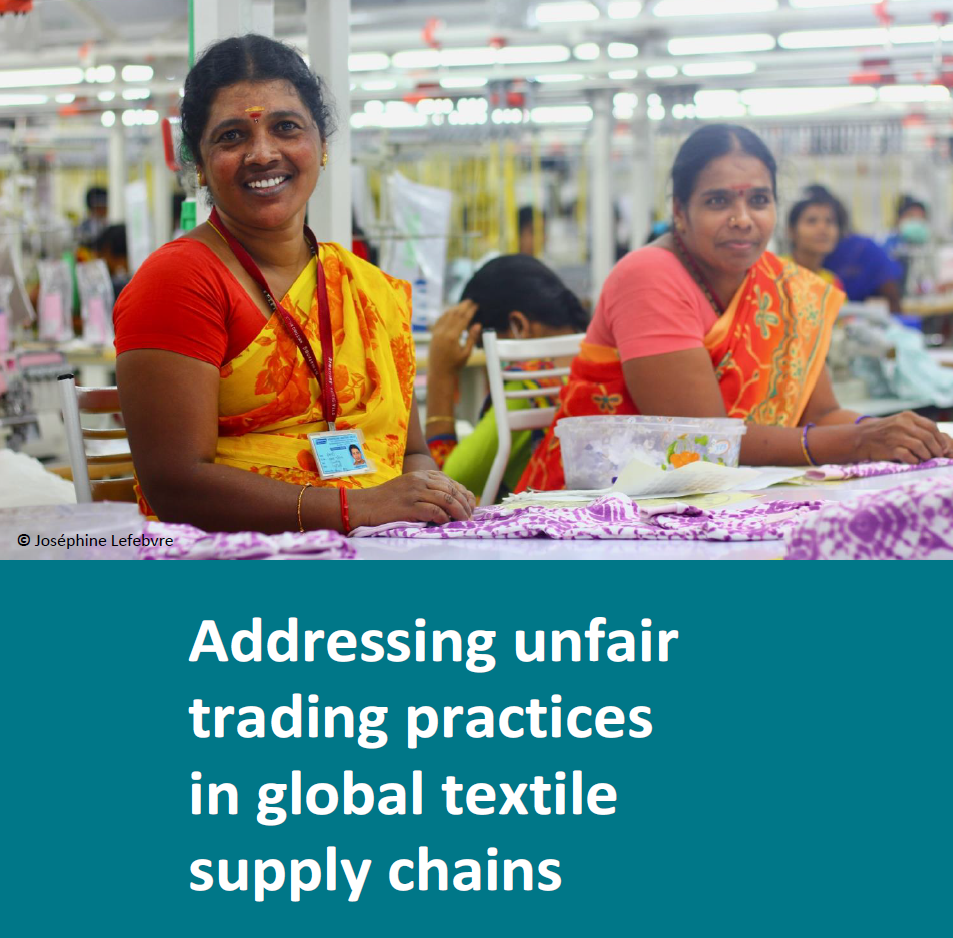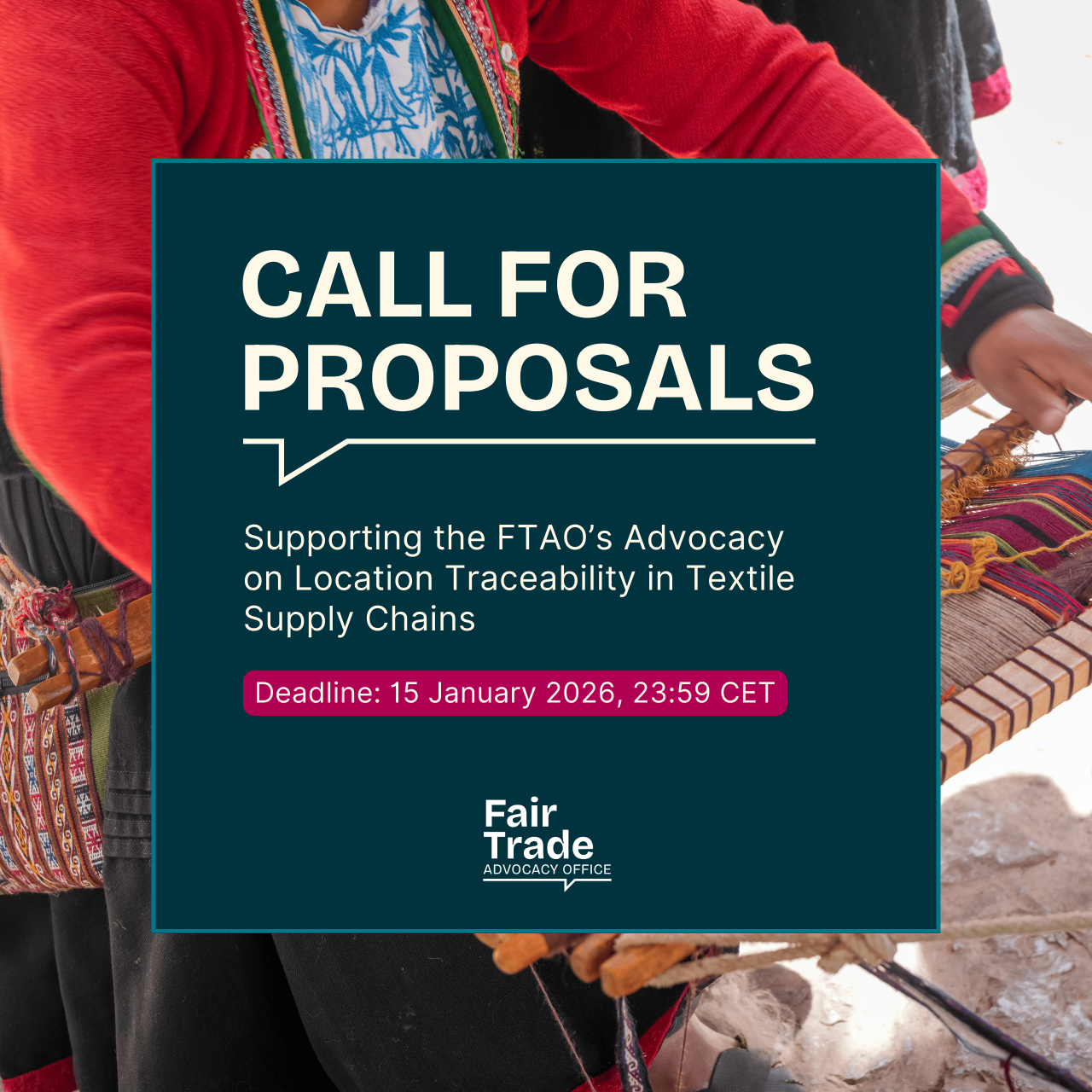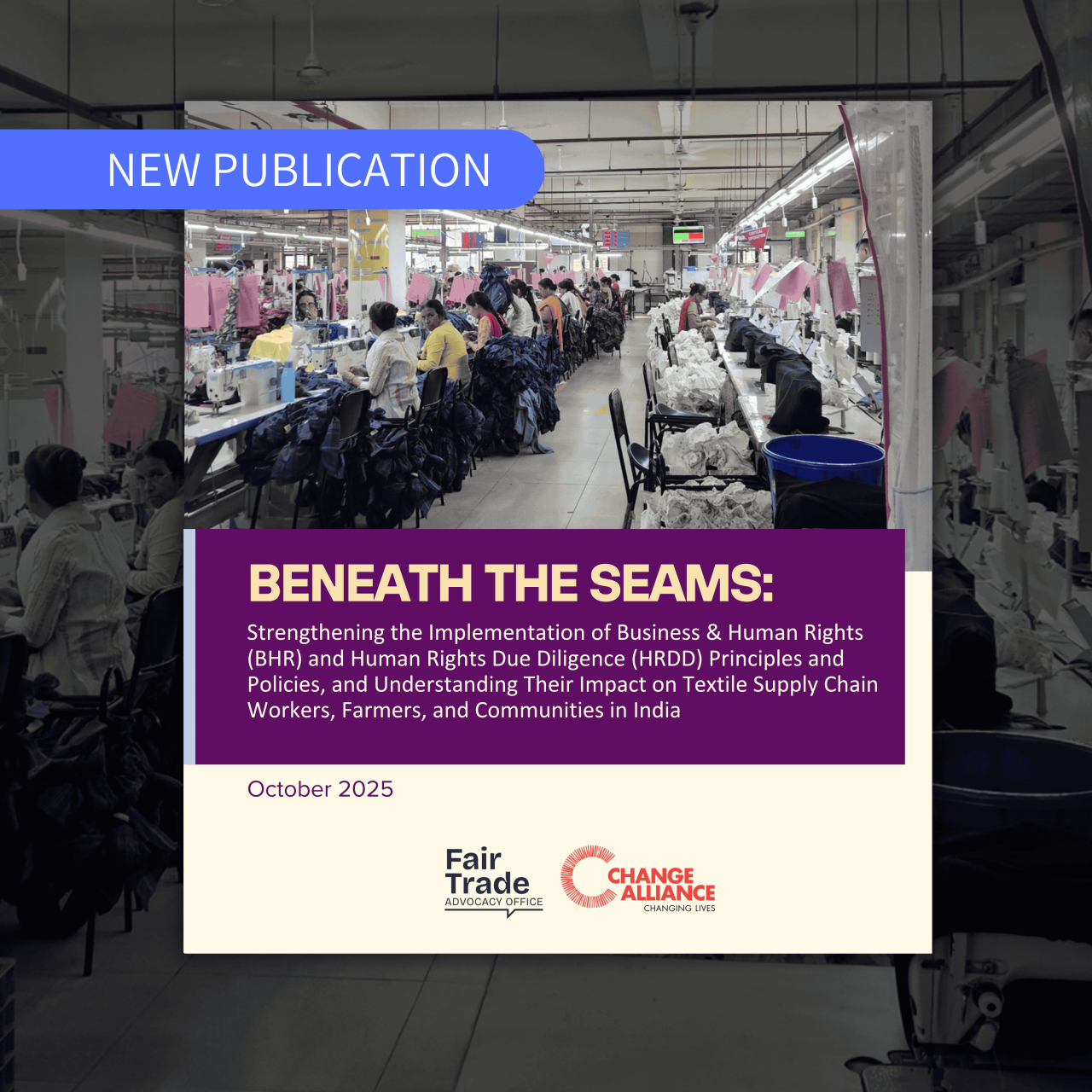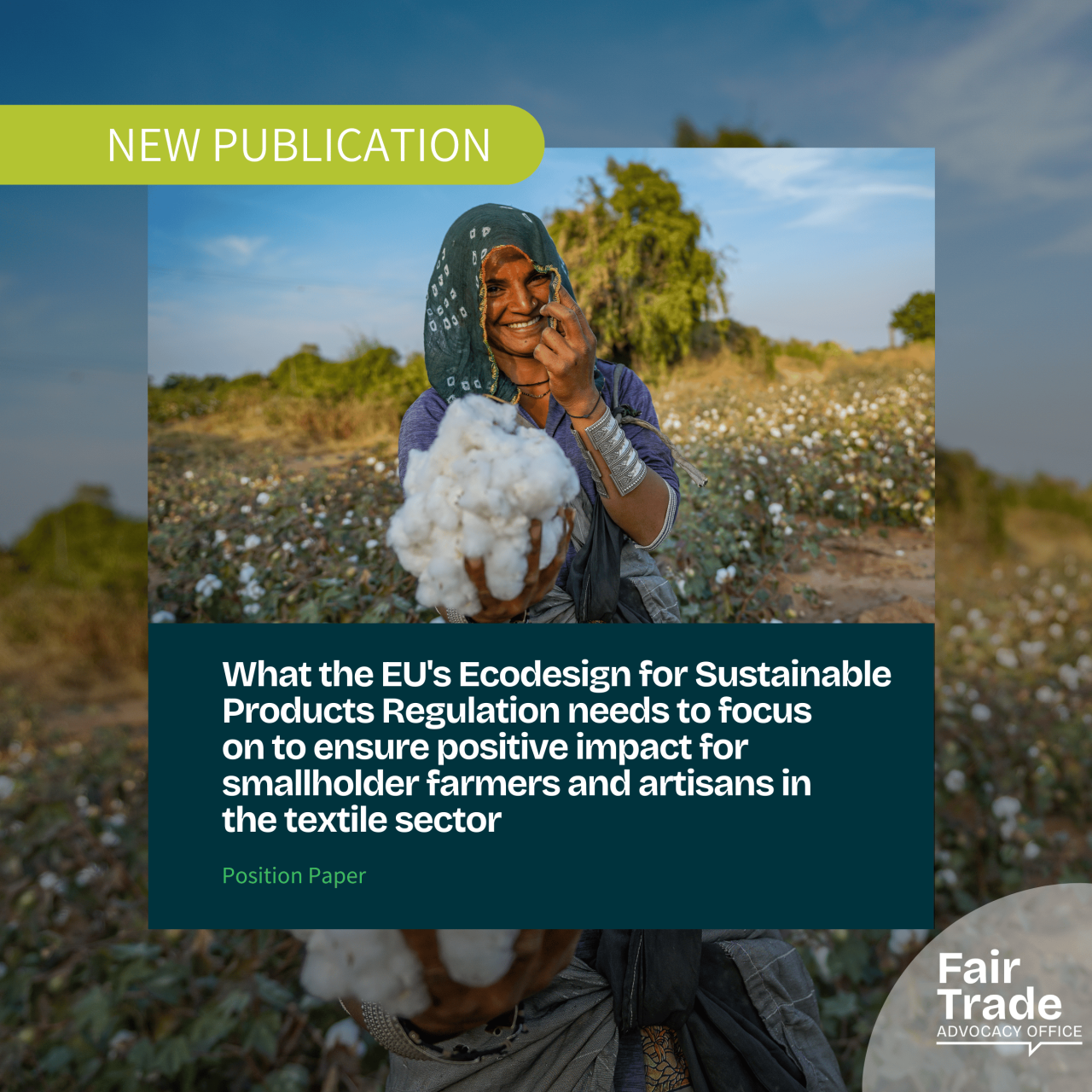Addressing unfair trading practices in global textile supply chains

The textile and garment industry employs millions worldwide, but it is also notorious for widespread labour and human rights abuses. Workers often face excessive hours, poverty wages, unsafe conditions, and gender-based violence. Despite being a major global employer, many in the sector cannot meet their basic needs.
The industry also has severe environmental impacts, polluting water, emitting greenhouse gases, and depleting natural resources through toxic production processes.
A key driver of these problems is the unequal power between global fashion brands and their suppliers. Brands dictate prices, deadlines, and contract terms, often leaving suppliers unable to challenge unfair practices. This imbalance pushes factories to cut corners on labour rights and environmental standards. The COVID-19 crisis exposed these vulnerabilities further, as brands cancelled orders and delayed payments, leaving workers without income.
To address these systemic issues, banning Unfair Trading Practices (UTPs) in the garment sector could complement the EU’s Corporate Sustainable Due Diligence (CSDD) framework. Without tackling power imbalances, due diligence risks becoming just another burden for weaker suppliers rather than a tool for fairer, more sustainable supply chains.
Read the full publication here.
More From The Workstream

CALL FOR PROPOSALS: Supporting the FTAO’s Advocacy on Location Traceability in Textile Supply Chains

The FTAO launches Textiles Advocacy Strategy Group to strengthen global voices in EU textile policy

Beneath the Seams: Strengthening Human Rights Due Diligence and its impact on textile workers, farmers and communities in India
